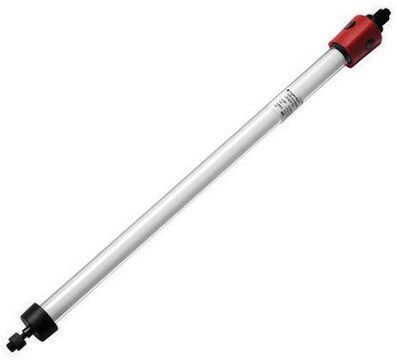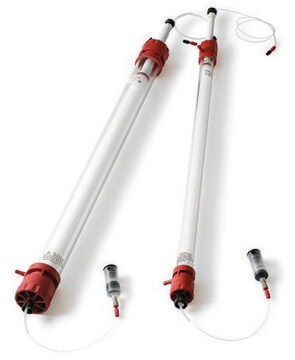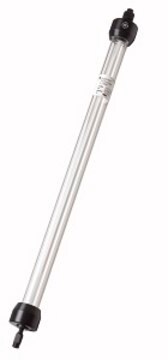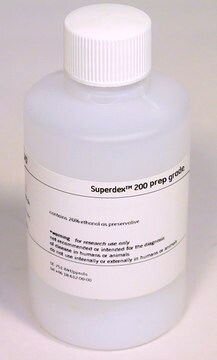GE28-9909-46
Superdex® 200 Increase 3.2/300
column L × I.D. 30 cm × 3.2 mm, 8.6 μm particle size
Synonyme(s) :
Superdex 200 Increase
About This Item
Produits recommandés
Matériaux
glass column
titanium frit
Gamme de produits
Superdex®
Poids mol.
10000-600000 Da (globular proteins)
Conditionnement
1 ea of
Paramètres
<0.15 ml/min flow rate
3.0 Mpa (652 psi)
4-50 mL sample volume
Volume du lit
~2.4 mL
Colonne, L × D.I.
30 cm × 3.2 mm
Matrice
agarose-dextran composite
polymeric
Taille des particules
8.6 μm
cleaning
1-14
Plage de travail
3-12
Technique de séparation
size exclusion (SEC)
Catégories apparentées
Description générale
Superdex™ 200 Increase is a next-generation, dextran-agarose composite matrix for SEC. With smaller and more rigid beads than their predecessors, Superdex™ Increase columns deliver higher resolution purification in shorter run times.
Superdex™ 200 Increase has a selectivity curve optimized for excellent resolution of antibodies and macromolecules within the range Mr ~ 100 000 to ~ 300 000. It is well suited for detection and separation of antibody monomers, dimers, and aggregates present in monoclonal antibody preparations. The outstanding resolving power of this resin facilitates protein characterization, including analysis of antibody size variants, assessment of membrane protein size homogeneity, and the study of protein-protein interactions.
Superdex™ 200 Increase is optimized to give high resolution separation for proteins with molecular weights in the range Mr ~ 100 000 to ~ 300 000. Superose™ 6 Increase provides a complementary fractionation range, resolving very large protein complexes and macromolecules that Superdex 200 Increase cannot separate.
This agarose-based resin is alkali-resistant and supports cleaning-in-place (CIP) procedures. This capability allows the same column to be used for different proteins, with minimal risk of carry-over between samples.
Caractéristiques et avantages
- Enhanced performance: improved resolution and runtime compared to predecessor Superdex™ 200.
- Very high resolution: small bead size and narrow particle size distribution provide high resolution, for high protein purity.
- High flow rates: rigid beads give excellent pressure/flow properties.
Adéquation
Stockage et stabilité
Informations légales
Mention d'avertissement
Warning
Mentions de danger
Conseils de prudence
Code de la classe de stockage
3 - Flammable liquids
Faites votre choix parmi les versions les plus récentes :
Certificats d'analyse (COA)
It looks like we've run into a problem, but you can still download Certificates of Analysis from our Documents section.
Si vous avez besoin d'assistance, veuillez contacter Service Clients
Déjà en possession de ce produit ?
Retrouvez la documentation relative aux produits que vous avez récemment achetés dans la Bibliothèque de documents.
Les clients ont également consulté
Articles
Pressure is generated by the flow through the chromatographic system. For optimal chromatography functionality, it is important to understand the principle of the pressure drop over the different parts of a system.
This page shows how to perform a purification of His-tagged membrane proteins.
Protocoles
Samples for chromatographic purification should be clear and free from particulate matter. Simple steps to clarify a sample before beginning purification will avoid clogging the column, can reduce the need for stringent washing procedures, and can extend the life of the chromatographic medium.
Global Trade Item Number
| Référence | GTIN |
|---|---|
| GE28-9909-46 | 4061834414858 |
Notre équipe de scientifiques dispose d'une expérience dans tous les secteurs de la recherche, notamment en sciences de la vie, science des matériaux, synthèse chimique, chromatographie, analyse et dans de nombreux autres domaines..
Contacter notre Service technique







